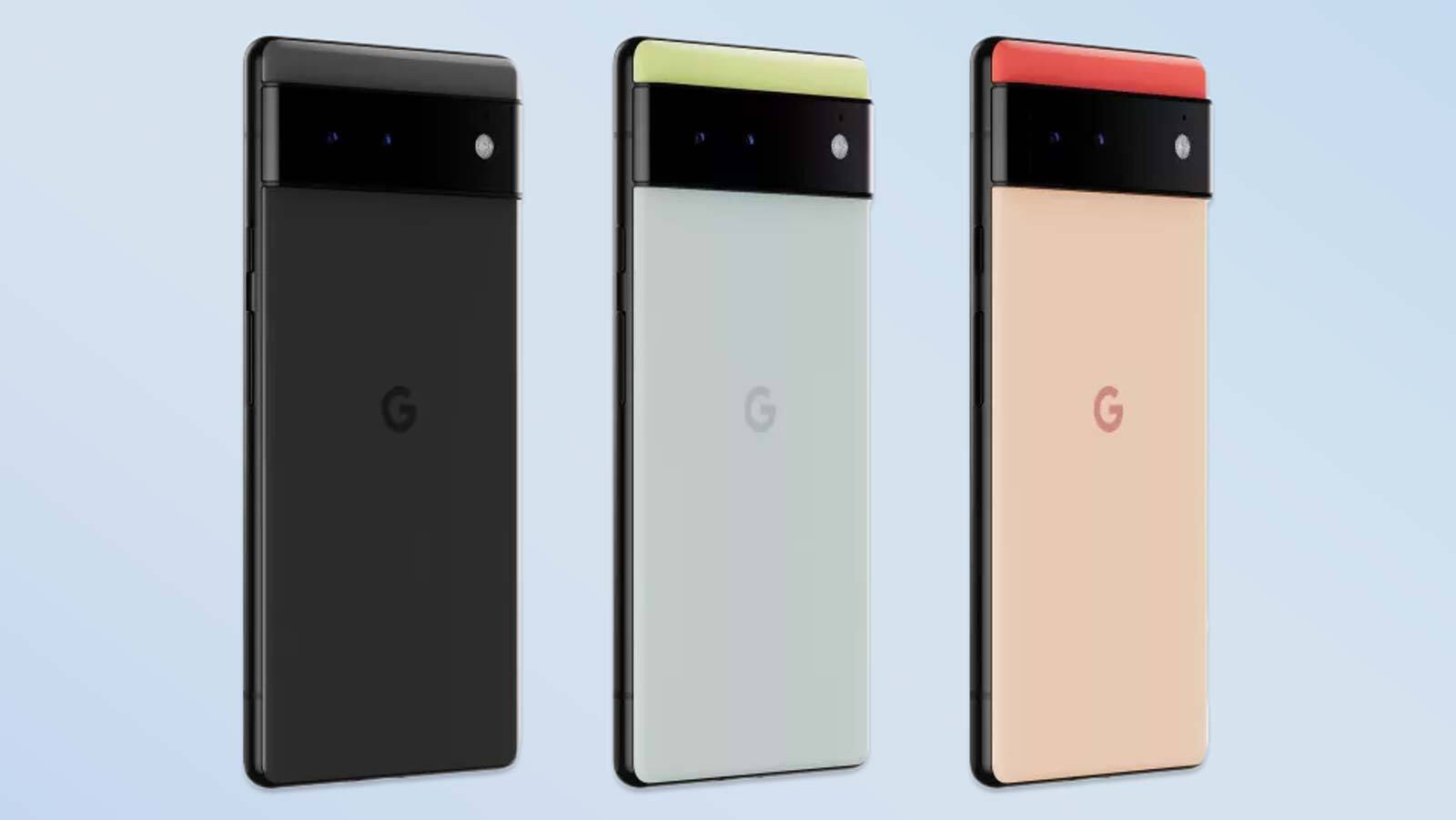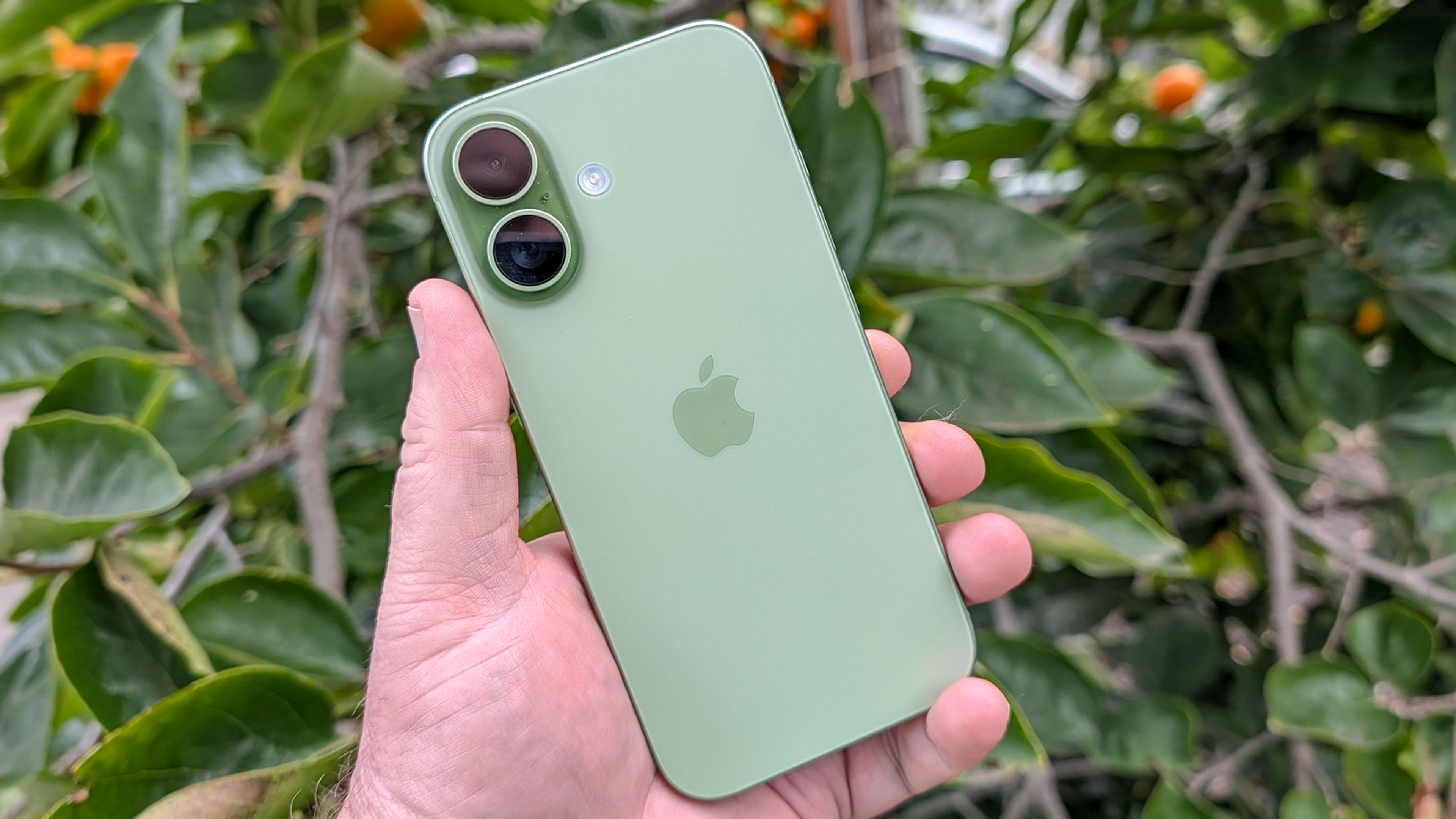Google Pixel 6 could be the best Android phone yet — and finally beat Samsung
Sorry, Samsung. The Pixel 6 actually looks exciting.

Here at Tom’s Guide our expert editors are committed to bringing you the best news, reviews and guides to help you stay informed and ahead of the curve!
You are now subscribed
Your newsletter sign-up was successful
Want to add more newsletters?

Daily (Mon-Sun)
Tom's Guide Daily
Sign up to get the latest updates on all of your favorite content! From cutting-edge tech news and the hottest streaming buzz to unbeatable deals on the best products and in-depth reviews, we’ve got you covered.

Weekly on Thursday
Tom's AI Guide
Be AI savvy with your weekly newsletter summing up all the biggest AI news you need to know. Plus, analysis from our AI editor and tips on how to use the latest AI tools!

Weekly on Friday
Tom's iGuide
Unlock the vast world of Apple news straight to your inbox. With coverage on everything from exciting product launches to essential software updates, this is your go-to source for the latest updates on all the best Apple content.

Weekly on Monday
Tom's Streaming Guide
Our weekly newsletter is expertly crafted to immerse you in the world of streaming. Stay updated on the latest releases and our top recommendations across your favorite streaming platforms.
Join the club
Get full access to premium articles, exclusive features and a growing list of member rewards.
I've been reviewing smartphones long before Google entered the arena with the original Google Pixel five years ago. (Think Palm Treo). And the Google Pixel 6 represents the first flagship I've seen by the company that could actually cause Samsung to look over its shoulder.
Make no mistake. Google's market share is a pittance compared to Samsung's, and the company's YoY growth was -7% in the U.S. according to Counterpoint Research. Meanwhile, OnePlus was up 400% and Samsung 17%.
- Google Pixel 6 release date, price, specs and news
- 5 things I want from the Google Pixel 6 Pro
- Plus: Google Pixel 5a leaker just tipped release date, price and full specs
But if you look at what the Google Pixel 6 promises — and I do mean promise, as Google has only teased key features so far — there's plenty of reasons to believe that Google could finally break through as the best Android phone in a world dominated by the Galaxy.
Google Pixel 6: The Tensor difference
Clearly the tentpole Pixel 6 feature is Google's Tensor SoC, which is designed to take AI and machine learning to the next level on phones. This is not a wholly new endeavor for Google, as it redefined the camera phone with its computational photography efforts on the Google Pixel 4. But it looks like Google will be able to do a lot more as it embraces its own silicon and ditches Qualcomm for this flagship.
Google will be able to do a lot more with computational photography as it embraces its own silicon and ditches Qualcomm.
The most eye-catching demo Google gave some reporters of the Tensor chip's potential was the photo of a moving toddler. Samsung Galaxy phones and the iPhone struggle in these situations, but the Pixel 6 is smart enough to take an additional exposure from its ultra-wide angle camera and apply some post-processing fixes. The result: A shaper image with a face that isn't blurred.
The Tensor chip will also enable Google to apply its computational photography magic to videos, such as when you're shooting sunsets. This sort of setting is particularly challenging for even the best camera phones, so I'm excited to see what the Pixel 6 can do here.
"Tensor chip is, perhaps, the most interesting thing about the Pixel 6," said Ramon Llamas, research director for IDC. "And because Google had a hand in its design, Google can chart its course a bit more clearly and a bit tighter than rely on different generations of other SoCs powering other phones."
Get instant access to breaking news, the hottest reviews, great deals and helpful tips.
The Tensor SoC has lots of applications beyond the camera. For example, you'll be able to see instant speech-to-text on your phone as you dictate while editing the text with your thumbs on the fly. And the Pixel 6 is also smart enough to deliver live captions of video you capture and even offer live translations. I'm sure this is only scratching the surface of what Tensor can do, and we'll learn a lot more when the phone officially launches.
For Google, Tensor is its chance to stand out in an Android phone space that has become a bit stale over the last few years. But unlike the Pixel 5, this time around Google is targeting a premium price.
“Once you’re investing in your own silicon, it only makes sense to target the high end of the market where you can make back some of that R&D,“ said Avi Greengart, founder of Techsponential.
Google Pixel 6: A truly 'new' design
While it's not as important, I'm also encouraged by the fact that Google went back to the drawing board with the Pixel 6's design. It has a more premium glass body and a prominent camera bar that runs across the top, as well as a wide array of two-tone color options. It actually looks "new."
At a time that shoppers are used to seeing the same old slabs from Samsung and others, the Pixel 6 looks like a breath of fresh air. But Google will need to back up these looks with the performance users expect and good battery life. The company has only promised "all day" endurance thus far.
The Google Pixel 6 will feature a 6.4-inch 90Hz display with two rear cameras, and the Pixel 6 Pro will sport a 6.7-inch 120Hz panel with a 4x optical zoom lens. So Google should have direct competitors to the Samsung Galaxy S21 and the Galaxy S21 Ultra.
Meanwhile, Samsung is reportedly readying two new flagship phones of its own in the Galaxy Z Fold 3 and Galaxy Z Flip 3, which will be unveiled August 11. I'm intrigued to see the next generation of foldables, but unless there's a dramatic price decrease the Pixel 6 will look more like the mainstream option this fall among new Android flagship phones.
Pixel 6 vs Galaxy S21: An opening for Google
Of course, Samsung still has the Galaxy S21 series and the awesome Galaxy S21 Ultra with its powerful zoom camera. But consumers just don't seem to have responded very well to these phones.
Having something at the high end to compete with the likes of Samsung and Apple is important.
Ramon Llamas, IDC
In fact, Korean publication Business Post reports that sales of the Galaxy S21 through the first six months are down 20% against the Galaxy S20 and 47% compared to the Galaxy S10.
Samsung also has the rumored Galaxy S22 on the way, which could offer a new RGBW camera sensor along with a powerful new Exynos chip with AMD graphics might. But that's not expected until early 2022.
And it looks like Google is going to try to make the most of this narrow opening. “We are ready to invest a lot in marketing and we want to grow," said Google hardware chief Rick Osterloh in an interview with The Verge. But can Google really take on the likes of Samsung?
"Samsung is the 800-pound gorilla, and it’s going to be hard to unseat it considering the legions of users out there. Nevertheless, having something at the high end to compete with the likes of Samsung and Apple is important," said Llamas.
Although Google has a very steep hill to climb to overtake Samsung in terms of sales, at the very least the Pixel 6 could start to change the conversation around who makes the best Android phone come this fall.
- More: Samsung Galaxy S21 FE just spotted in certification listings as launch nears
- PSVR 2 could take virtual reality more mainstream — but will it?
- How to check Android battery health
Mark Spoonauer is the global editor in chief of Tom's Guide and has covered technology for over 20 years. In addition to overseeing the direction of Tom's Guide, Mark specializes in covering all things mobile, having reviewed dozens of smartphones and other gadgets. He has spoken at key industry events and appears regularly on TV to discuss the latest trends, including Cheddar, Fox Business and other outlets. Mark was previously editor in chief of Laptop Mag, and his work has appeared in Wired, Popular Science and Inc. Follow him on Twitter at @mspoonauer.
 Club Benefits
Club Benefits











